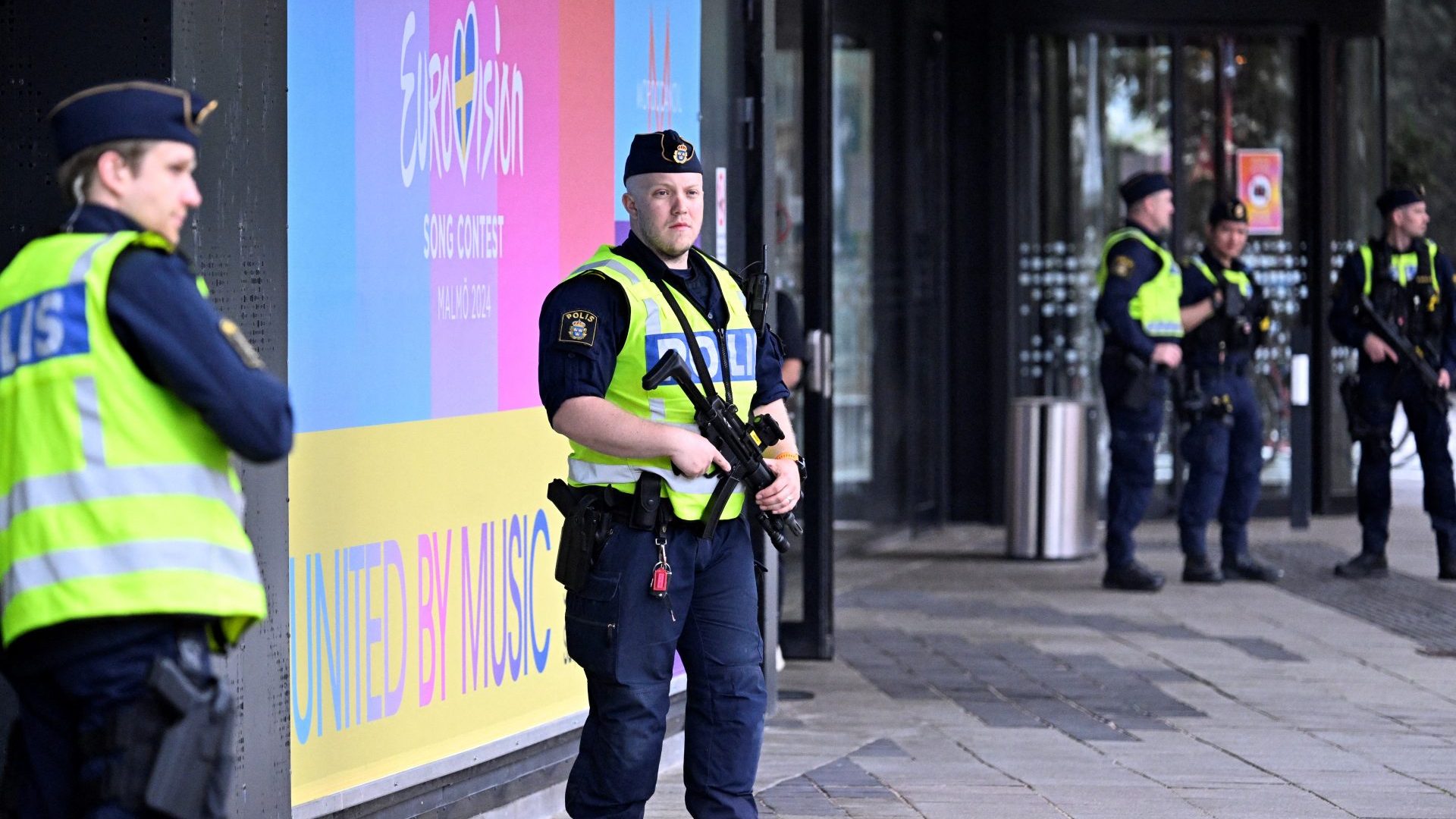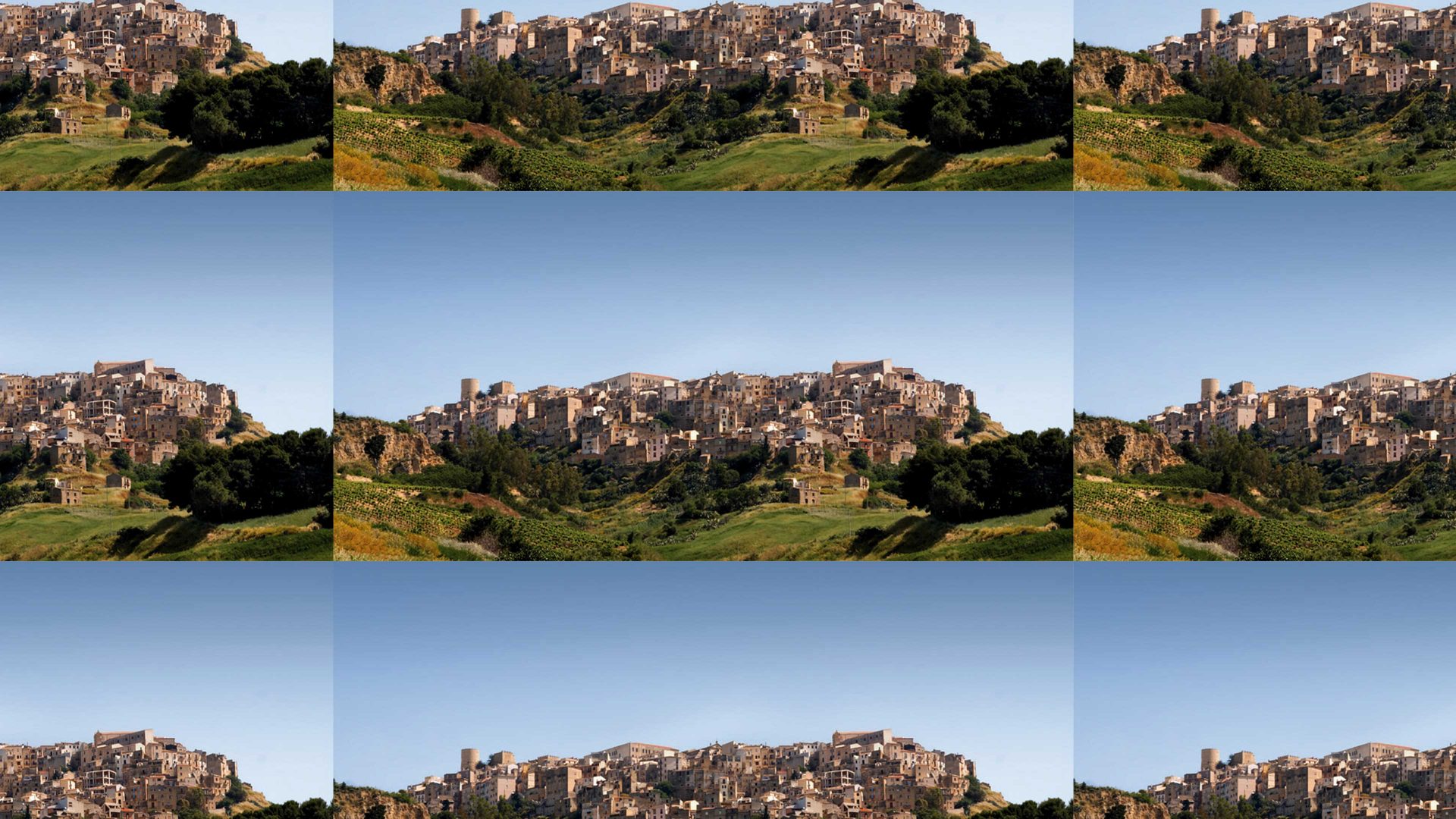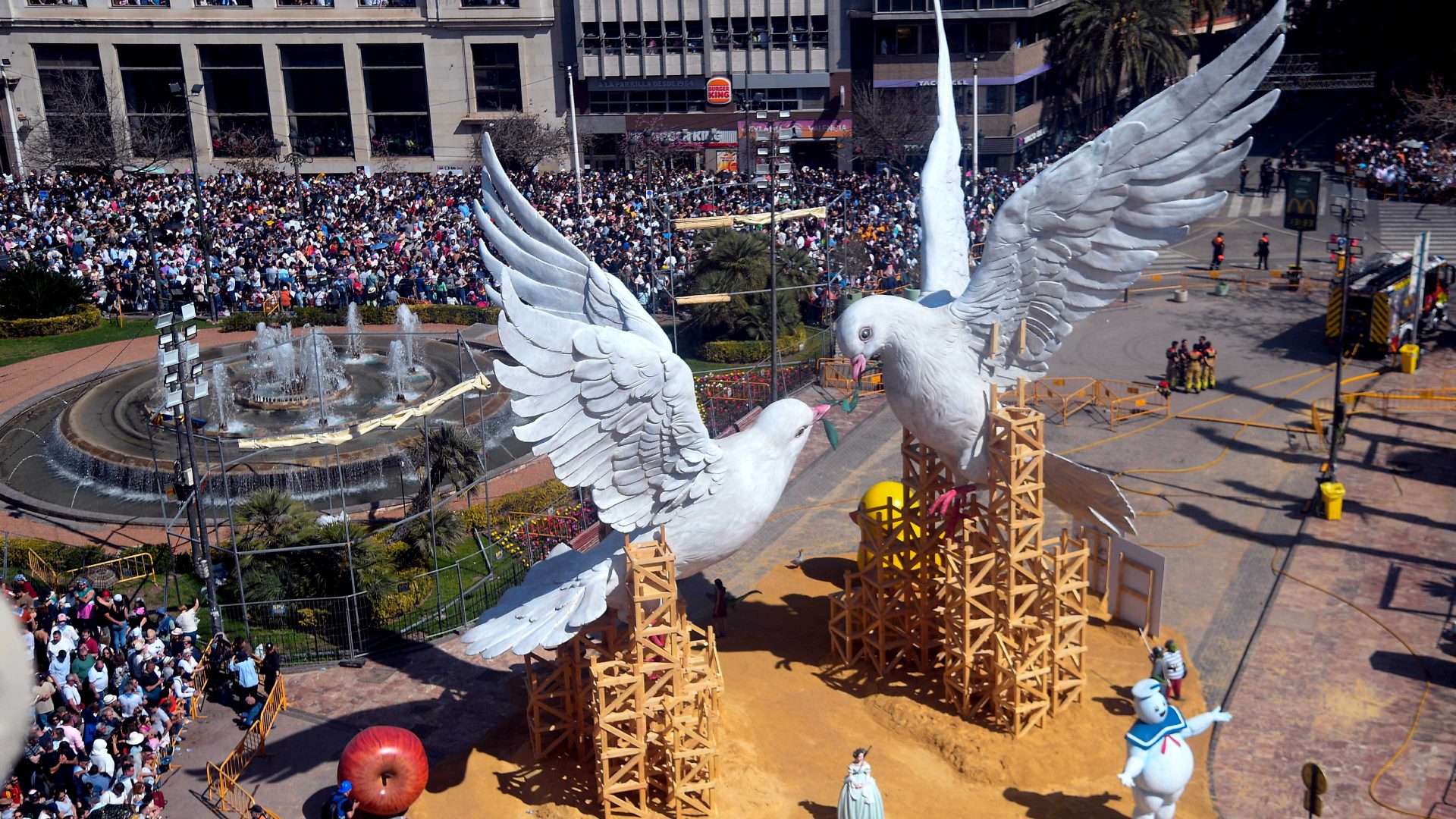According to the hype, this year’s Eurovision is going to be a special one, because it is the 50th anniversary of ABBA’s 1974 win at the Dome Theatre in Brighton. Older fans go dewy-eyed as they recall conductor Sven-Olof Walldoff dressed as Napoleon, the opening chords – so rocky for Eurovision at that time – and Agnetha and Anni-Frid, all smiles, bounding on to the stage. “My! My!”
Though this year’s contest is taking place in Sweden, ABBA are unlikely to perform, though the organisers are still hoping some of them will appear.
But there are other resonances from 1974 that will be much less welcome. During the interval, viewers around Europe were baffled by footage of the Wombles wandering around on the Brighton esplanade. The compere, Katie Boyle, looked suitably embarrassed, too, as one of the creatures clomped across the stage and pressed a rose into her hand.
And yet a security threat hung over proceedings. The early 1970s were the height of the Troubles in Northern Ireland, and in 1974 there had been bombings in Dublin, Monaghan, Guildford and Birmingham.
Eurovision nearly didn’t go ahead at all. Shortly before the curtain was due to go up, a coded bomb warning was sent. Bill Cotton, the producer, had to make the call: go ahead or cancel. The security forces had been at work all week, using sniffer dogs, and insisted there were no grounds for suspicion. Cotton decided to go ahead.
Fifty years on, the threat level is again high, this time due to Israel’s participation in the contest. Initially, their entry, October Rain, was rejected as being too political by the event’s organisers. Often, when an entry is treated in this way, the country will withdraw for that year.
But Israel’s decision to participate went to the top: its president, Isaac Herzog, insisted any controversial lines be changed, so that the country could be seen to be part of the contest. This was duly done, and 20-year-old Eden Golan will now be singing an entry called Hurricane.
This has not removed the controversy about Israel’s participation, however. Medina, the duo that was runner-up act in this year’s Melodifestivalen (Sweden’s hugely popular contest to choose their Eurovision entrant), have cancelled their planned performance at the Eurovision village. Artists representing the 37 countries in this year’s contest have expressed reservations, but none has gone as far as to pull out. Big demonstrations are planned in the host city of Malmö.
More scary – and more redolent of 1974 – is the concern about terrorism. Sweden has recently become a target for terrorists, a growing threat that has coincided with provocative acts by far-right groups, such as burning copies of the Qur’an. Sweden is also a target for Russian interference after joining Nato on March 7 this year.
Despite its determination to participate, the Tel Aviv government has advised Israeli fans not to attend the event. Swedish security forces are on high alert. The local police have asked for reinforcements, not just from other parts of the country but from Norway and Denmark. There are reports that 10% of the 600 support volunteers have resigned.
These events risk undermining the ethos of the entire contest. The Eurovision brand is founded on the idea that music and its enjoyment brings together people of all ages, races, sexual orientations and views. Music, in other words, can reach across divides – but there is a sense that this is under challenge this year.
Eurovision has always, in its leftfield way, reflected its times, and the times we live in now are dark. Maybe a contest overshadowed by fear of violence is not what we would like, but perhaps it is what we are due.
Chris West is the author of Eurovision! A History of Modern Europe Through the World’s Greatest Song Contest (Melville House)



